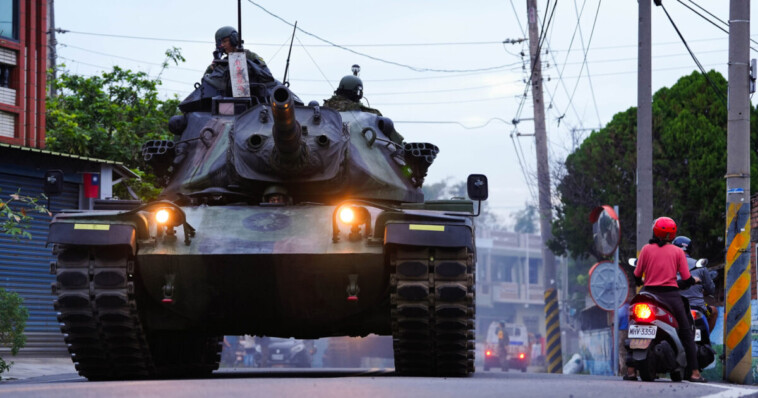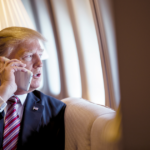
Taiwan’s Presidential Office has conducted its first-ever tabletop exercise simulating a military escalation with China.
The three-hour exercise involved dozens of central and local government agencies, as well as civil groups.
Led by Vice President Hsiao Bi-khim and National Security Council Secretary-General Joseph Wu, the simulation addressed scenarios ranging from high-intensity grey-zone warfare to situations where the island teetered on the brink of conflict.
Reuters reported:
In a media briefing at the Presidential Office late on Thursday, Interior Minister Liu Shyh-fang said the government is aiming to train more than 50,000 volunteers across the island by next year capable of emergency response including first aid capacity.
Liu said the government hoped to involve the public sectors such as taxi drivers and security guards to relieve burdens for government agencies during an emergency.
Various government agencies were also asked to build backup systems and make plans for speedy recovery after a shutdown, she said
President Lai Ching-te said Taiwan is “racing against time” to build up its capacity to counter disasters and boost its deterrence against an invading enemy.
“The peace and stability in the first island chain is being collectively challenged by authoritarian states,” Lai was quoted as saying in a statement from his office, although he did not name any specific country.
The first island chain is a collection of archipelagos running roughly from Indonesia in an arc northeast to Japan, encompassing the South China Sea and East China Sea.
China has staged two rounds of major exercises around Taiwan this year to pressure Taipei, one in May and one in October, dubbed “Joint Sword – 2024A” and B, respectively.
In October, Lai listened to the feedback and took action by creating the Whole-of-Society Defense Resilience Committee and mobilizing 400,000 civilians to be ready in the event of military conflict.
The initiative aims to engage civilians willing to assist in resisting foreign occupation or attack. It requires collective efforts from the diplomatic corps, the military, security services, the private sector, civil society, and the broader population.
This development comes amid a backdrop of heightened Chinese military activities near Taiwan. In recent months, China has conducted large-scale naval deployments and daily military operations close to the democratically governed island, which Beijing claims as its own.
Notably, a fleet of 90 Chinese naval and coastguard vessels approached Taiwan earlier this month, prompting the Taiwanese military to elevate its alert status.
Earlier this year, National Security Council spokesperson John Kirby addressed the media, stating that the United States does not advocate for Taiwan’s independence, reiterating the longstanding ‘One China’ policy.
During a press conference, a reporter questioned Kirby about the content of the Biden-Xi call, specifically regarding Taiwan.
“Certainly, Taiwan came up in the context of — of the call. There’s not a single discussion that we don’t have with senior leaders in the PRC where we don’t talk about Taiwan. Of course, it came up,” Kirby responded.
“I won’t characterize President Xi’s comments. But I can tell you that — that President Biden was very, very clear that — that nothing has changed about our One China policy. We don’t support independence for Taiwan. But we also don’t want to see the status quo changed in a unilateral way and certainly not by force.”



